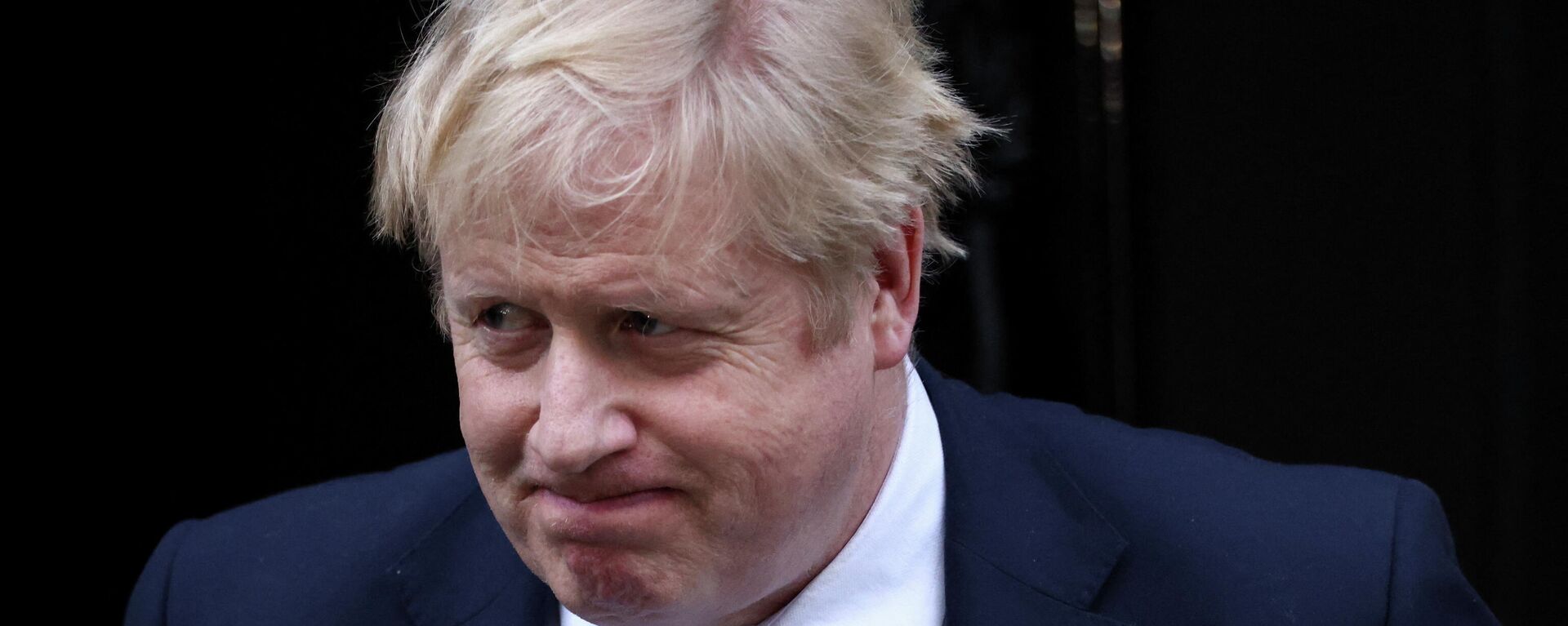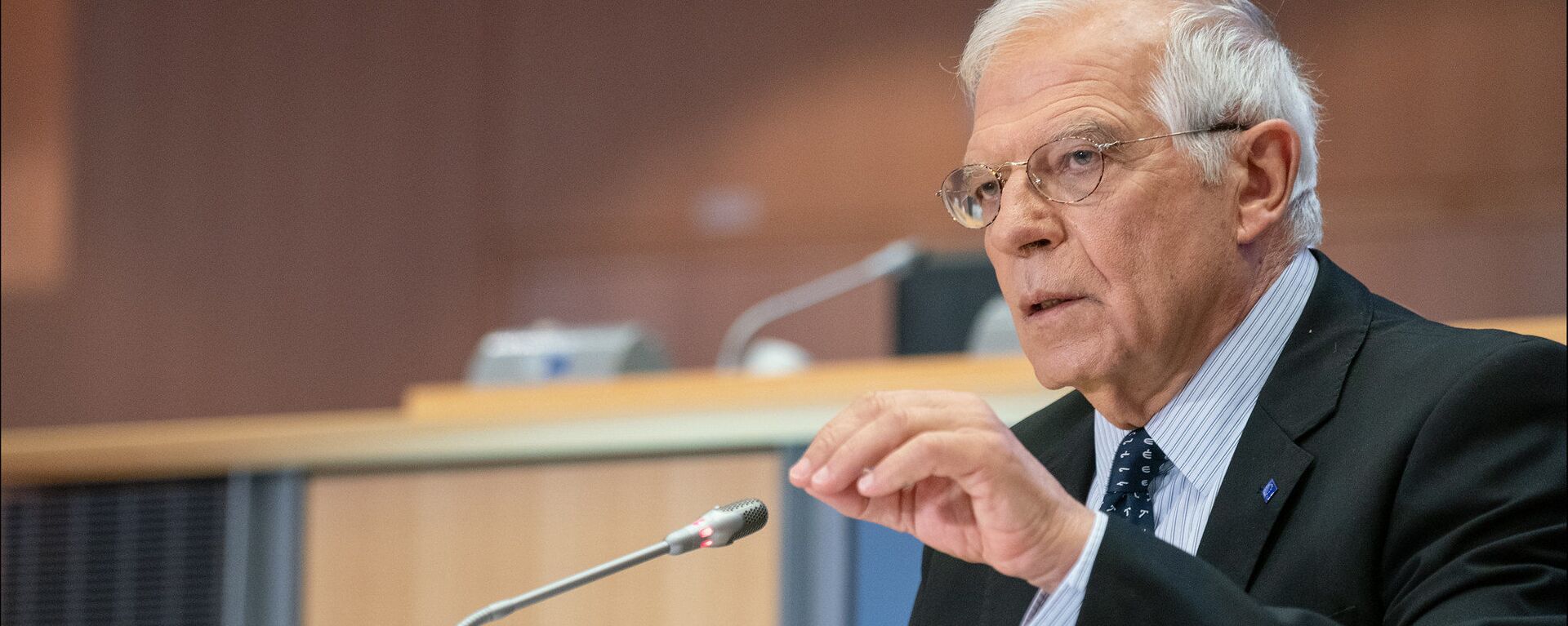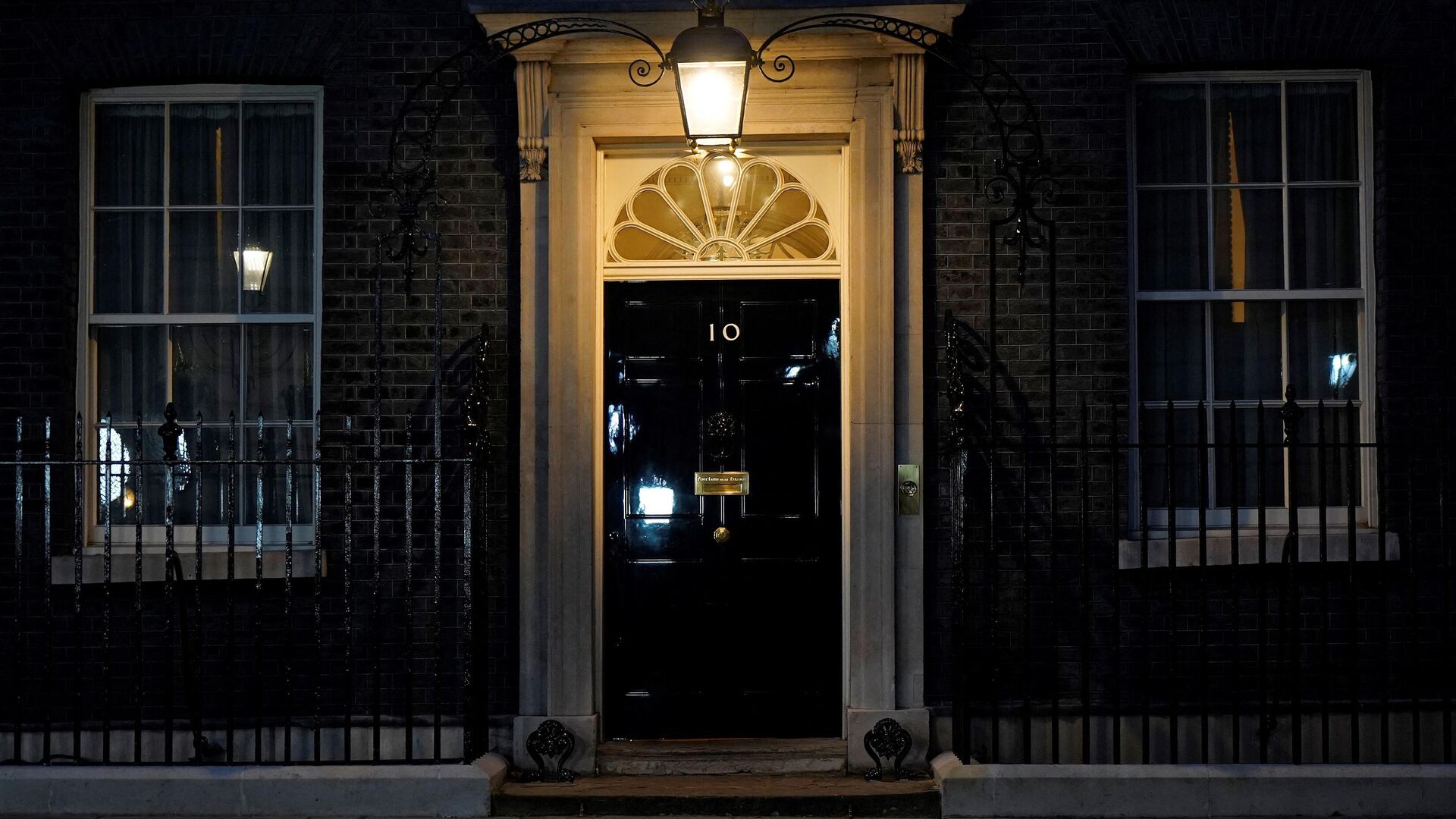https://sputnikglobe.com/20220210/uk-unveils-new-russia-sanctions-legislation-amid-ukraine-crisis-1092917837.html
UK Unveils New Russia Sanctions Legislation Amid Ukraine Crisis
UK Unveils New Russia Sanctions Legislation Amid Ukraine Crisis
Sputnik International
London has spearheaded the effort by Washington's European NATO allies to ramp up tensions with Russia in recent months, accusing Moscow of planning to... 10.02.2022, Sputnik International
2022-02-10T17:06+0000
2022-02-10T17:06+0000
2023-05-28T15:18+0000
russia-nato row on european security
united kingdom (uk)
https://cdn1.img.sputnikglobe.com/img/07e6/02/04/1092738466_0:96:3299:1952_1920x0_80_0_0_d6aefdaded78e735b499ff19fe10eb0f.jpg
The UK published new sanctions regulations on Thursday expanding the list of persons and entities which may be subject to sanctions in the event of Russia invading its Ukrainian neighbour."In this regulation, an 'involved person' means a person who - a) is or has been involved in - i) destabilising Ukraine or undermining or threatening the territorial integrity, sovereignty or independence of Ukraine, or ii) obtaining a benefit from or supporting the Government of Russia, b) is owned or controlled directly or indirectly...by a person who is or has been so involved, c) is acting on behalf of or at the direction of a person who is or has been so involved, or, d) is a member of, or associated with, a person who is or has been so involved," the legislation reads.The legislation also includes US-style "secondary sanctions," with those providing "financial services, or mak[ing] available funds, economic resources, goods or technology" to those deemed to undermine Ukraine also subject to restrictions.As for those "involved in obtaining a benefit from or supporting the Government of Russia," these may involve anyone "carrying on business as a Government of Russia-affiliated entity," anyone with business of potential "economic" or "strategic" significance to the Government of Russia," or those "owning or controlling directly or indirectly...or working as a director...trustee, or equivalent" of Russian government-affiliated entities or persons.The "Government of Russia" is defined in the legislation to include the presidential administration, ministries, other public bodies including the armed forces and law enforcement organs, as well as the Central Bank."Strategic" sectors include chemicals, construction, defence, electronics, energy, the extraction industry, the financial services sector, information, communications and digital technologies, and transport.First Talk, Then ThreatenThe new sanctions threats were issued the same day that UK Foreign Secretary Liz Truss travelled to Moscow for talks with her Russian counterpart Sergei Lavrov about easing bilateral and regional tensions.Truss's visit was accompanied by fresh threats from Defence Secretary Ben Wallace to send additional troops to Eastern Europe if necessary.Speaking to reporters on Thursday, Lavrov characterized the West's narrative on Ukraine as a "tragedy that, however, looks more like a comedy." The foreign minister expressed suspicions about efforts by Washington and London to evacuate staffers from their respective embassies in Kiev and said the Russian side may advise its non-essential personnel to do the same. Lavrov said he found it "regrettable" that Britain's dialogue with Russia comes down to demands that Moscow remove troops from its own territory.The UK, the US and other NATO allies have spent months accusing Moscow of planning to invade Ukraine, citing the alleged concentration of "100,000 troops" near the border. Russian officials have dismissed the West's claims and accused the US and its allies of deliberately stoking tensions in a bid to justify a beefed-up NATO presence in Eastern Europe.Moscow presented the US and NATO with twin security proposals in December aimed at dramatically easing tensions by limiting troop, missile, warship and military aircraft deployments in areas where they may be seen as a threat to the other side. The proposals include a request that NATO halt its decades-long eastward expansion, and bar Ukraine and other former Soviet republics from joining the military bloc. US and NATO officials have publicly rejected the Russian proposals, stressing that the Western alliance will not close its 'open door' policy. Russia has warned that it may be forced to implement as yet unspecified "counter-threats" if its security proposals are rejected.
https://sputnikglobe.com/20220210/johnson-says-uk-trained-22000-ukrainian-soldiers-considers-further-military-cooperation-1092914406.html
https://sputnikglobe.com/20220210/borrell-says-he-responded-to-lavrovs-letter-on-indivisibility-of-security-on-eus-behalf-1092910600.html
united kingdom (uk)
Sputnik International
feedback@sputniknews.com
+74956456601
MIA „Rossiya Segodnya“
2022
News
en_EN
Sputnik International
feedback@sputniknews.com
+74956456601
MIA „Rossiya Segodnya“
Sputnik International
feedback@sputniknews.com
+74956456601
MIA „Rossiya Segodnya“
united kingdom (uk)
UK Unveils New Russia Sanctions Legislation Amid Ukraine Crisis
17:06 GMT 10.02.2022 (Updated: 15:18 GMT 28.05.2023) London has spearheaded the effort by Washington's European NATO allies to ramp up tensions with Russia in recent months, accusing Moscow of planning to "invade" Ukraine and sending lethal weapons and trainers to Kiev. Moscow has slammed the UK over its activities and expressed fears that London may be planning some kind of provocation in Ukraine.
The UK
published new sanctions regulations on Thursday expanding the list of persons and entities which may be subject to sanctions in the event of Russia invading its Ukrainian neighbour.
"In this regulation, an 'involved person' means a person who - a) is or has been involved in - i) destabilising Ukraine or undermining or threatening the territorial integrity, sovereignty or independence of Ukraine, or ii) obtaining a benefit from or supporting the Government of Russia, b) is owned or controlled directly or indirectly...by a person who is or has been so involved, c) is acting on behalf of or at the direction of a person who is or has been so involved, or, d) is a member of, or associated with, a person who is or has been so involved," the legislation reads.
The regulations deem a person to be "involved in destabilizing Ukraine" if he or she "is responsible for, engages in, provides support for, or promotes any policy or action which destabilizes Ukraine or undermines or threatens the territorial integrity, sovereignty or independence of Ukraine," as well as anyone who "provides financial services, or makes available funds, economic resources, goods or technology" for these purposes.
The legislation also includes US-style "secondary sanctions," with those providing "financial services, or mak[ing] available funds, economic resources, goods or technology" to those deemed to undermine Ukraine also subject to restrictions.
Anyone found to "obstruc[t] the work of international organizations in Ukraine," conduct "business with a separatist group in the Donbass region," or engage in trade in Russia's Crimea can also be sanctioned.
As for those "involved in obtaining a benefit from or supporting the Government of Russia," these may involve anyone "carrying on business as a Government of Russia-affiliated entity," anyone with business of potential "economic" or "strategic" significance to the Government of Russia," or those "owning or controlling directly or indirectly...or working as a director...trustee, or equivalent" of Russian government-affiliated entities or persons.
The "Government of Russia" is defined in the legislation to include the presidential administration, ministries, other public bodies including the armed forces and law enforcement organs, as well as the Central Bank.
"Strategic" sectors include chemicals, construction, defence, electronics, energy, the extraction industry, the financial services sector, information, communications and digital technologies, and transport.

10 February 2022, 13:40 GMT
First Talk, Then Threaten
The new sanctions threats were issued the same day that UK Foreign Secretary Liz Truss travelled to Moscow
for talks with her Russian counterpart Sergei Lavrov about easing bilateral and regional tensions.
Truss's visit was accompanied by
fresh threats from Defence Secretary Ben Wallace to send additional troops to Eastern Europe if necessary.
Speaking to reporters on Thursday, Lavrov
characterized the West's narrative on Ukraine as a "tragedy that, however, looks more like a comedy." The foreign minister expressed suspicions about efforts by Washington and London to evacuate staffers from their respective embassies in Kiev and said the Russian side may advise its non-essential personnel to do the same. Lavrov said he found it "regrettable" that Britain's dialogue with Russia comes down to demands that Moscow remove troops from its own territory.
The UK, the US and other NATO allies have spent months accusing Moscow of planning to invade Ukraine, citing the alleged concentration of "100,000 troops" near the border. Russian officials have dismissed the West's claims and accused the US and its allies of deliberately stoking tensions in a bid to justify a beefed-up NATO presence in Eastern Europe.
Moscow presented the US and NATO with twin security proposals in December aimed at dramatically easing tensions by limiting troop, missile, warship and military aircraft deployments in areas where they may be seen as a threat to the other side. The proposals include a request that NATO halt its decades-long eastward expansion, and bar Ukraine and other former Soviet republics from joining the military bloc. US and NATO officials have publicly rejected the Russian proposals, stressing that the Western alliance will not close its 'open door' policy. Russia has warned that it may be forced to implement as yet unspecified "counter-threats" if its security proposals are rejected.

10 February 2022, 11:26 GMT




